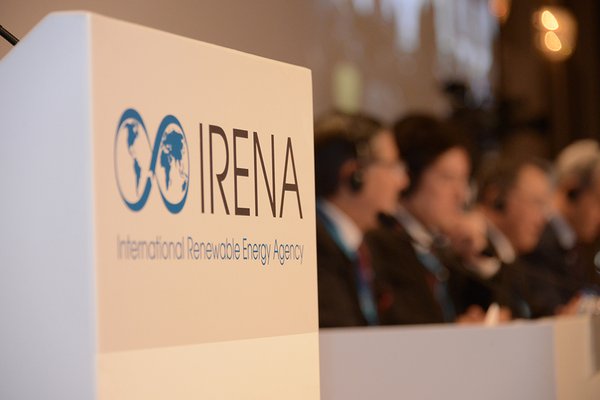ID :
394576
Fri, 01/22/2016 - 09:43
Auther :
Shortlink :
https://oananews.org//node/394576
The shortlink copeid
Renewables, natural gas take centre stage in Global Energy Debate

ABU DHABI, 22nd January, 2016 (WAM) -- Leading energy experts agreed on the use of both renewables and natural gas as viable solutions to sustainable development and climate change during the third annual Executives Dialogue. The event, co-hosted by the Renewable Industry Advisory Board, RIAB, of the International Energy Agency, IEA, the International Renewable Energy Agency, IRENA, and the UAE Ministry of Foreign Affairs, was part of Abu Dhabi Sustainability Week, a global forum to address the world’s most pressing sustainability issues.
During the forum, industry experts discussed the future of global energy, impacts of new energy sources in the Middle East and North African, MENA, region, key takeaways from the Paris climate summit and opportunities to accelerate a diversified mix of energy sources.
"At global level, increasingly affordable renewables are set to dominate new capacity additions in power systems, even in the context of lower fossil fuel prices. But this will require sound market rules and policies, eliminating market distortions and taking a system optimisation approach, in which gas has also an important role to play," said Dr. Paolo Frankl, Head of the Renewable Energy Division at the IEA.
While renewable energy is an attractive tool to diversify energy systems and address climate change, natural gas is widely recognised as a clean fossil fuel and is likely to remain a major driver of energy growth in the coming decades. Compared to coal or oil, natural gas emits 50-70 percent less carbon emissions from every kilowatt-hour of electricity produced. Cost, energy security and climate action are equally hot topics for the MENA region.
"The UAE is almost exclusively powered by natural gas, however, we are diversifying our economy and energy mix through clean energy sources, including renewables and nuclear," said Ali Shafar, Deputy Director for Energy and Climate Change at the Ministry of Foreign Affairs. "It makes economic sense and is part of our commitment to climate action."
Due to fast economic and population growth, the MENA region is experiencing increased demand for energy and must consider all viable options for future growth. As a result, energy decision makers are looking to add new power plants to keep the lights on, however, ones that are more efficient, cleaner and ideally cheaper.
"Renewable energy comes as a clean, cost-effective solution and natural gas can offer the needed flexibility to ensure 24-hour electricity supply when the sun doesn’t shine," says Paul Nillesen, PwC Global Leader, Market Design and member of RIAB, who co-organised the event. "That way, natural gas and renewables complement each other in a smart energy mix, which is fully reliable and lower in carbon emissions."
The adoption of the Sustainable Development Goals, SDGs, and the Paris climate agreement in 2015 drew the international spotlight on the future energy debate and set the world into action in addressing issues on energy security, sustainability and climate change.
"Whether to improve energy security, reduce our carbon footprint, save money or to create jobs, industry experts agree that renewable energy will grow tremendously in the next three years," said Dr. Rabia Ferroukhi, Deputy Director of Knowledge, Policy and Finance at IRENA. "Most countries in the Middle East now have renewable energy targets making the region a vital growth market."
The IEA-IRENA Executives Dialogue was held on January 19th during the World Future Energy Summit, WFES, at Abu Dhabi Sustainability Week. – Emirates News Agency, WAM - http://www.wam.ae/en/news/emirates/1395290580398.html





